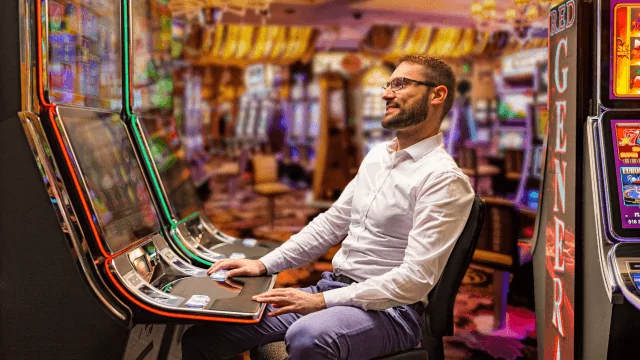Self-exclusion is one of the tools offered by gambling operators to promote responsible gambling. Players may agree with land-based or online operators that they will refrain from gambling for a specified amount of time voluntarily.
Acquaint yourself with odds and probabilities; keep track of wins and losses; set limits on how long you spend gambling; and seek help for gambling problems if necessary.
Legality
Self-exclusion is a tool designed to assist gamblers who recognize their problem gambling and want to stop. While effective at helping individuals stop, this form of exclusion does not appear effective at reducing gambling harm at a population level, as much of the gambling market remains unregulated without self-exclusion agreements in place.
Recent research on voluntary self-exclusion (VSE) programs in high-income societies revealed that while VSE programs can be an effective means of preventing gambling harm, their impact at limiting it at population levels remains limited. The researchers investigated various factors which can limit its effectiveness – such as scope and enforcement mechanisms of excluded services – which might limit VSE effectiveness; their findings suggested several measures which might increase it such as: minimising loopholes; strengthening regulation and enforcement mechanisms; or creating an SE register that tracks both land-based gaming with ID checks of individuals upon entering venues.
Limits
Self-exclusion can be an effective tool to assist problem gamblers, but it has limitations. These may include needing more counseling support, high costs and lack of publicity; nevertheless it plays an essential role in responsible gambling and may prevent people from falling deeper into addiction.
People who sign up for self-exclusion can choose from various durations ranging from one year to lifetime. It can be applied both offline (such as casinos and gambling venues) and online gambling venues; however, it’s not foolproof; there may still be ways around it; people with gambling problems could still find new gaming opportunities hidden from view, while having official ID such as driver’s licenses or passports allows them to gamble even after signing the self-exclusion list.
According to a scoping review conducted across multiple studies, participants reported numerous barriers and limitations associated with current self-exclusion programs, including low publicity/awareness levels, lack of privacy/confidentiality measures, inadequate staff training needs and ineffective monitoring for breaches.
Regulations
Self-exclusion (SE) is a well-recognized harm reduction strategy, though breaches are more frequent than expected and online gambling remains the leading form of breaching an SE order. Still, studies indicate its efficacy by decreasing time spent gambling and its negative consequences for an individual gambler.
Legal regulations and exclusion conditions can have an effect on SE’s effectiveness; however, this strategy alone doesn’t seem capable of significantly decreasing gambling harm at an individual or population level.
To maximize the effectiveness of SE programs, it is critical that they are visible and accessible to problem gamblers. This can be accomplished with effective public messaging conveying key benefits of SE. Furthermore, providing an easy and confidential application process and information on additional assistance for gambling problems are both key components. Furthermore, exclusion terms must be enforced so gamblers know of any consequences associated with breaching agreements made.
Conclusions
Self-exclusion programs remain unclearly effective as tools for responsible gambling; however, recent research indicates they may reduce problem gambling behaviors and their severity, limit internet gambling by restricting access, and make gambling secret harder to do – findings which jive with previous research showing self-exclusion can serve as a complementary approach in treating gambling problems.
Though some studies have yielded mixed results, most participants in the six articles reviewed provided positive reviews about self-exclusion programs. For instance, 74% rated casino staff as very or somewhat effective at providing information regarding this kind of self-exclusion plan and its obligations.
Many participants found it easier than expected to join a self-exclusion program and they were satisfied with penalties for breaching it, though some might have liked to see more severe sanctions applied if any were broken. Finally, several individuals expressed wish that it included more venues (EGMs and sports betting).


